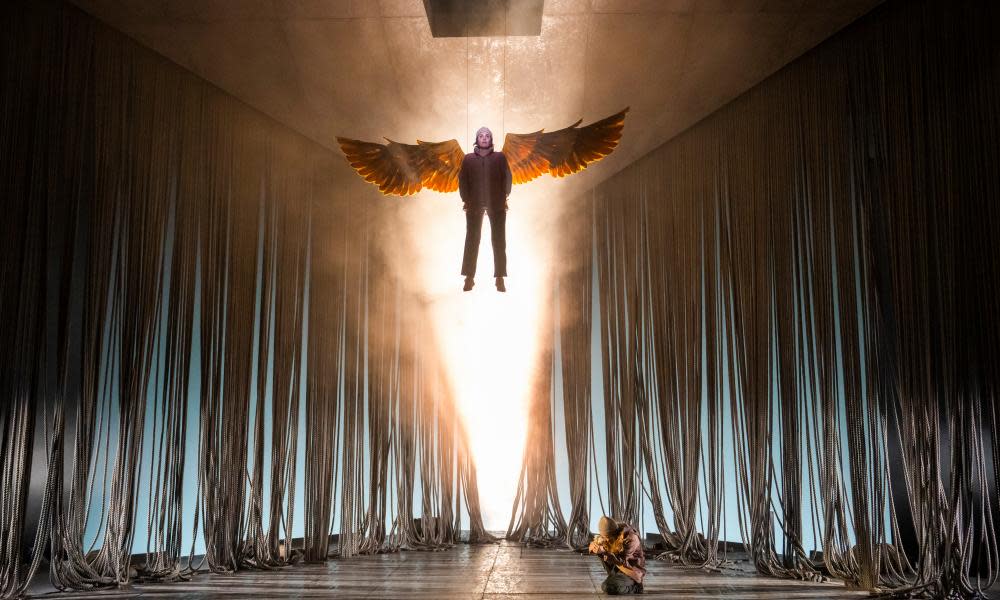The arts in Britain are teetering on the brink. Here is my plan to save them

The great conductor Simon Rattle hit a nerve when he talked about the recent cuts to the “flesh of our culture”. Three years after the pandemic started, audiences might be back, but confidence that the arts can withstand waning government support isn’t, and classical music isn’t alone in feeling beleaguered.
When I became director of the National Theatre in 2003, things could not have been more different. Government investment was flowing into the arts and the Arts Council had the resources to fund a renaissance in regional theatre. Between 1997 and 2007 arts spending doubled; dance, opera and classical music all flourished.
The optimism and financial security that made the first years of my stint at the National so fruitful now seem like a distant memory. Today, I don’t know a single subsidised arts organisation in the country that feels financially secure. Many freelance artists have given up, battered by the pandemic and the disastrous removal of their right to work freely in the EU.
During the pandemic, the unexpected generosity of the government’s £1.6bn Culture Recovery Fund prevented a collapse of the entire sector. But I despair at the bizarre decision to invest heavily in a fund to help the arts outlive Covid, only to starve them of the support they need to return to health.
An admirable commitment to boost spending outside of London as part of the levelling-up agenda turned out to be a textbook example of levelling down. In February 2022, the then culture secretary, Nadine Dorries, instructed the Arts Council to take £24m from London and distribute it elsewhere in England: nowhere near enough to transform the picture in the rest of the country, but enough to devastate English National Opera, and many others.
The Arts Council was established to distribute state funding at arm’s length without government interference, so you might have expected it to resist the government’s assault on its independence. Maybe it tried, but the suspicion is that the Dorries agenda dovetailed neatly with its own. In its latest strategy document, the Arts Council laid out plans for England to be a country “in which the creativity of each of us is valued and given the chance to flourish. A country where every one of us has access to a remarkable range of high-quality cultural experiences.”
Nobody could argue with either of these ambitions. The problem is that “the creativity of each of us” must these days be nurtured without the help of schools from which the arts have been ruthlessly stripped. Even more of the Arts Council’s reduced resources must be ploughed into papering over the cracks of an education system that has turned its back on music, drama and the visual arts. And that’s even before it addresses the goal of unlimited adult creativity.
This vast remit is in addition to what used to be the Arts Council’s sole purpose, but now comes second: the support of what it coyly calls “high-quality cultural experiences”. In other words: funding and giving access to the work of writers, composers, actors, musicians and dancers who have trained and devoted their professional lives to making art.
There isn’t enough money to do any of it, so it’s no surprise that my colleagues have given up on trying to make their case with the current government and are looking to what will presumably be the next one. In their approach, I hope they will be bold. After 13 years under attack, it’s too easy to adopt the cringe of a whipped dog. Even the great Simon Rattle, though he was on the warpath, felt he had to “understand this is a time of belt-tightening”.
The total Arts Council England grant is £458.5m: less than 0.05% of all government spending. Even doubling it would make barely a dent in the national finances. But a significant increase would be transformational out of proportion to the relatively modest sums involved: on the confidence and productivity of artists, the size and enthusiasm of audiences, the wellbeing of communities,our town and city centres and our international reputation.
But funding is only part of the problem for an Arts Council that is being pulled in several different directions. Maybe the way forward is for the arts to use sport as a model. There are two distinct funding bodies for sport. UK Sport has, in its own words, “a very clear remit at the ‘top end’ of Britain’s sporting pathway, with no direct involvement in community or school sport”. And it wins us medals. The other, Sport England (which has equivalents in the other home nations) invests in sport and physical activity to make it a normal part of life for everyone and gets us out on the track at the weekend. Both functions are vital.
My proposal, then, for a Labour government, is to fund, in addition to the Arts Council, a new body as expert in its field as Sport England. In doing so, recognise the importance of participation in the arts with its own funding stream, to which new community-based initiatives as well as established education and outreach programmes can apply. And re-establish the arts in schools.
Meanwhile, focus the Arts Council’s existing grant on making the best possible art by professional artists for the most diverse possible audience. There is more than enough talent and more than enough enthusiasm to rebuild the creative powerhouse that has been so battered by the last 13 years.
Nicholas Hytner is a theatre director, film director, and film producer. He was previously artistic director of London’s National Theatre

 Yahoo News
Yahoo News 
